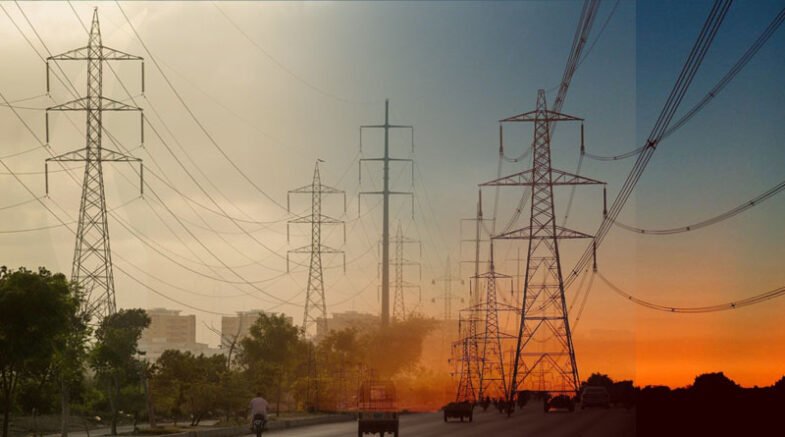In order to meet the energy needs of Pakistan, the government has planned to construct a new refinery, according to the minister of state for petroleum.

In order to meet the energy needs of Pakistan, the government has planned to construct a new refinery, according to the minister of state for petroleum.
The project, which had been in development for some time, was approved by the prime minister, according to minister, during a meeting of the Cabinet Committee on Energy (CCoE).
The estimated cost of the new refinery is $10–14 billion. In addition to highlighting the significance of energy for economic growth, minister expressed his confidence that Pakistan would advance thanks to this new initiative.
The minister announced that Pakistan would soon receive its first shipment of cheap oil from Russia after the current administration successfully negotiated with Moscow.
The government has decided to stop supplying gas to power plants and instead provide 50 million cubic feet per day (MMCFD) of gas to low-income households. This policy aims to promote energy conservation and end the monopoly of a few companies that have been charging consumers exorbitant prices.
The new policy would promote energy company competition, leading to competitive prices for consumers, including tenants who have been overcharged by landlords and building owners for privately supplied energy resources.
He continued, “The new initiatives show the government’s commitment to supplying the nation with energy while giving affordability and equity for all a top priority.
The final approval has been postponed until the next CCoE meeting while the CCoE on Friday provisionally approved the draught refining policies for new refineries and the improvement of local refineries.
The Kingdom of Saudi Arabia will proceed with the installation of a cutting-edge refinery worth $10.5 billion in Pakistan once the CCoE has approved the draft for green refineries.
With Pakistan projected to gain $9 billion in net foreign exchange over a 25-year period, this new refinery is expected to have a significant positive economic impact. The proposed refinery would only use crude supplied by Aramco, which would allow for additional investment from nations like China.
Furthermore, the construction of a brand-new refinery will help Pakistan avoid any future hiccups in the distribution of petroleum products throughout the nation.
Although there were some concerns raised by the FBR, the meeting attendees were generally in favour of the refining draughts for both the brown and green refineries.
The meeting’s chair asked the pertinent officials to resolve the problems and bring the two refining policy draughts to the following meeting for approval, an official told media. The general outline of the National Energy Efficiency and Conservation Policy of 2022 has been approved by the CCoE.
The specifics and implementation methods, however, won’t be finalised right away. The CCoE has approved the continuation of old gas development schemes initiated by the previous PML-N government.
The National Electricity Plan 2023-27 was not taken up due to the refining policy drafts. The new refinery, with a capacity to refine 350,000 barrels of crude oil per day, will create job opportunities for Pakistanis.
The $10.5 billion state-of-the-art deep conversion refinery will be built under a 70:30 loan equity ratio and Saudi Aramco will share 30 percent equity with Pakistan State Oil (PSO) on a 50 percent basis. The EPC mode will be adopted and a Chinese company will also be part of the project.
Saudi Arabia has agreed to meet the demands of Saudi Aramco to secure investment in the country’s refining sector and incentives requested by the Saudi oil giant have been included in the draft of refining policy.
However, officials warned that complying with Saudi Arabia’s demands would have a significant impact on the nation’s revenue from crude oil and finished petroleum products. The 5 percent customs duty that has already been imposed on imported crude oil used for the refinery has also been requested to be waived by Saudi Arabia.
Pakistan had previously proposed a 10-year tax holiday and a 10-year deemed duty of 10% for the first 10 years the project was operational. It seems, though, that the Kingdom has rejected these requirements.
According to the official, the 300,000 barrels per day megaproject would be built using the EPC (engineering, procurement, and construction) method. Also, loans will be used to cover 70% of the project’s cost. “Saudi Aramco would contribute $1.5 billion as equity and Pakistan State Oil would arrange the same amount.”
The official continued, “Saudi Aramco and PSO would finance $3 billion equity ($1.5 billion each), with the remaining amount being arranged through loans under EPC mode.
Numerous international players would quickly join the project once Saudi Aramco joined it, and Saudi Arabian and Chinese banks as well as IFIs would be willing to lend money, according to the statement.
According to the proposed plan for upgrading local refineries, the refineries will be given tariff protection equal to the current 10 percent customs duty on imported petrol and diesel. Local refineries will need to upgrade in order to produce fuels meeting Euro-V specifications and reduce the production of residual fuel (furnace oil).
This will require a significant capital investment of between US$4 and US$4.5 billion, which will require government financial assistance.
After financial close, the fund will be used for six years to upgrade the refinery, which could account for between 25 and 30 percent of the project’s total cost.
Under the condition that one of the top four audit firms verifies it, OGRA will oversee the fund utilisation process in accordance with their committed work plan and milestone.
Around 11 MTPA of refined products are produced locally by refineries (including 30 percent of local crude processing), while about US$ 10 billion worth of crude oil and petroleum products are imported annually.
Five (05) local refineries refine both domestic and imported crude. Refineries are a strategic asset that provide the fuel needed for transportation, energy, and defence, as well as being useful in emergency situations like pandemics and wartime conditions.
